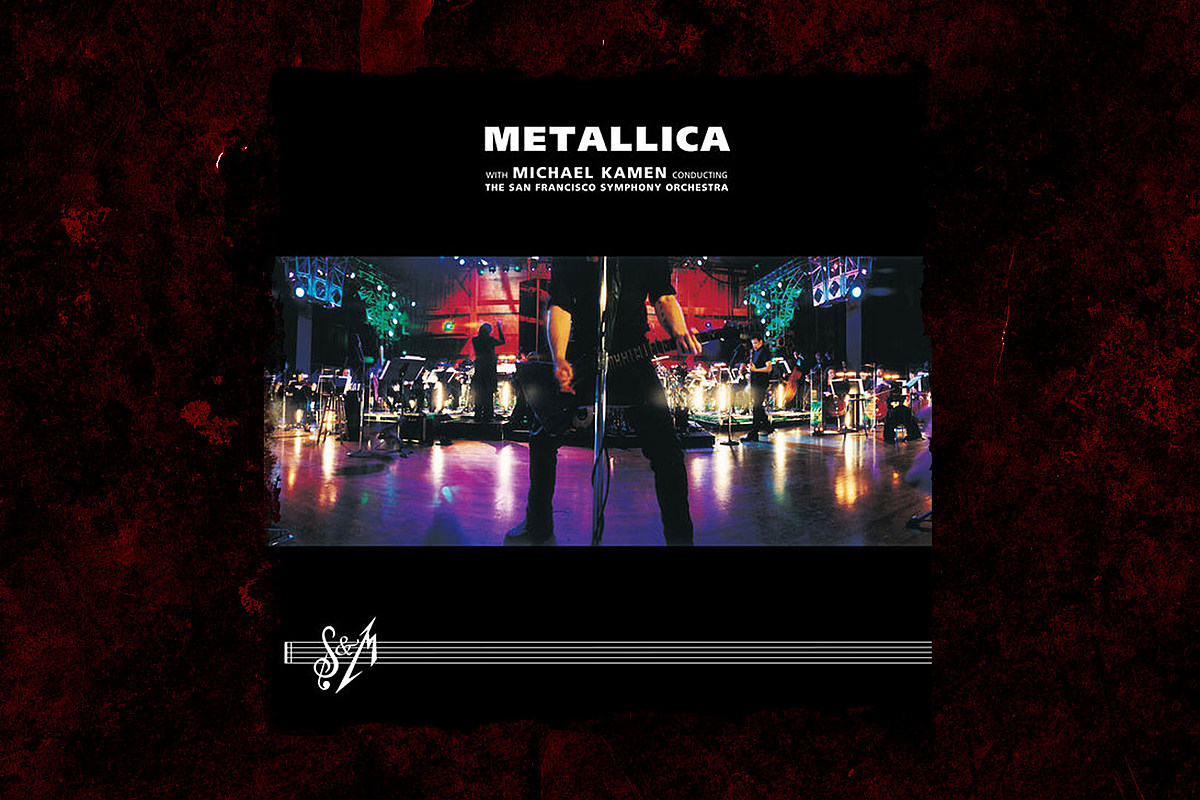
To some, it seemed like Metallica were running out of ideas. After 1997’s Reload – which was actually the completion of a session they began for 1996’s Load), the band released the double-album of covers, Garage Inc., and on Nov. 23, 1999, they put out S&M, a two-disc career-spanning live collaboration between Metallica and conductor Michael Kamen’s San Francisco Symphony.
For anyone who’s examined Metallica’s history it was really just another example of the band expanding its horizons and trying something out because they just fuckin’ wanted to. It’s a path Metallica have taken throughout their career, whether pioneering a new musical style on 1983’s Kill ‘Em All, abandoning their thrash core and writing a straight-ahead metal record on 1991’s Metallica, experimenting with cut-and-paste production, low-fi engineering and angular writing for 2003’s St. Anger or joining forces with Lou Reed for the improvisational 2011 concept album Lulu.
Sometimes the diversions have been triumphs, occasionally they’ve been failures, but each step Metallica has taken has been crucial in their evolution. Without the freedom to screw up, the band wouldn’t have enjoyed its success.
S&M, which stands for Symphony and Metallica, wasn’t a groundbreaking achievement, but it was a cool experiment that yielded an enjoyable album. The album features at least one selection from every studio record except Kill ‘Em All, as well as the two new songs, “No Leaf Clover” and “Human,” and Kamen wrote a complementary orchestral score for over 100 classical musicians.
Metallica With Michael Kamen and the San Francisco Symphony Orchestra, “No Leaf Clover”
Kamen discovered Metallica in 1991 when he worked with producer Bob Rock on parts for an acoustic remix of “Nothing Else Matters,” which was the B-side of the “Sad But True” single. Intrigued by the possibilities of a true collaboration, Kamen asked Metallica if they would be interested in playing a set of their songs along with his orchestra.
The band agreed and provided Kamen a list of the songs they wanted to perform. Kamen crafted a cinematic soundtrack to the songs that augmented and enhanced the music with whirling violin and flutes passages between riffs, and martial horn and string parts to accompany some of Metallica’s heaviest and most well-known rhythms. The band and orchestra debuted the compositions at two concerts at The Berkeley Community Theatre, April 21 and 22, 1999. Both shows were recorded and Rock edited the best takes into the S&M album. “S&M was Michael’s idea, Michael’s brainchild. He said he had always felt that our music lent itself to collaboration with an orchestra,” said Metallica.
Metallica With Michael Kamen and the San Francisco Symphony Orchestra, “Human”
Often, live albums featuring orchestras are greeted with indifference by fans; not S&M. Buoyed by glowing reviews, the set sold swiftly and abundantly, shifting 300,000 copies in its first week and debuting at No. 2 on the Billboard album chart. By Jan. 14, 2000, S&M was certified quadruple platinum, according to the RIAA. On June 9, 2003 S&M was quintuple platinum.
Metallica also released a video and DVD version of the concerts, filmed by director Wayne Isham. The film sold over 600,000 copies in the U.S. and was certified sextuple platinum. While Metallica thoroughly enjoyed working with Kamen and the attention it brought them, S&M was a one-off project rather than some sort of sonic epiphany.
“From the time he approached us with the idea at that first breakfast meeting in 1997, to the day after the final mixes were complete on the record and the DVD, through the performances in Berlin, New York, and Las Vegas, we enjoyed two extremely fun, challenging, and creative years together,” said Metallica in a statement after Kamen died of multiple sclerosis in 2003. Metallica have not worked with an orchestra since S&M, though drummer Lars Ulrich doesn’t rule it out.
“The thing about Metallica is you never know what we’re going to do,” he told me in 2012. “We might work with an orchestra again, we might get a call from someone we’ve never worked with before who we like and who wants to work with us, and suddenly we’ll do an album together.”
Loudwire contributor Jon Wiederhorn is the author of Raising Hell: Backstage Tales From the Lives of Metal Legends, co-author of Louder Than Hell: The Definitive Oral History of Metal, as well as the co-author of Scott Ian’s autobiography, I’m the Man: The Story of That Guy From Anthrax, and Al Jourgensen’s autobiography, Ministry: The Lost Gospels According to Al Jourgensen and the Agnostic Front book My Riot! Grit, Guts and Glory.


 51
51